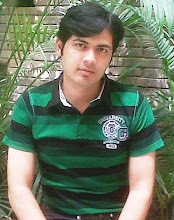Case 1
Ray Davidson listened in amazement as his student, Frank Sawyer, recounted his reactions to his National Foundation interview. Sawyer had applied for funds to support research for his dissertation and had just recently been interviewed by a foundation representative with regard to his application. He sat across the desk from Davidson, laughing and obviously enjoying his success in "faking out the National Foundation people." Sawyer had flunked his oral exams during the spring term but did not reveal this to his interviewer. Instead, Sawyer told him that he was scheduled to take his orals in the late autumn. The interviewer hinted that Sawyer was very likely to received funding if he passed his orals.
After Sawyer left the office, Davidson wondered what he should do. Although Sawyer had failed his oral exams the first time, he was a good student, and Davidson felt that he would pass the next time. However, he was concerned whether a student with this attitude toward the truth would become a reliable scientist, and whether he might be tempted to skew his data to support his hypotheses. Should Davidson inform the National Foundation representative of Sawyer's deception?
Root Cause
(of Davidson contemplating complaining against Sawyer)
The feeling that he may become an unreliable, dishonest scientist
Assumptions involved
1. The biggest assumption is that Sawyer will necessarily fudge figures and will not be a credible scientist.
2. The second is that Sawyer is a crook since he lied to the interviewer. He may be doing so because of a strong desire to pursue his research.
Opinion
I Think Davidson should not inform the Foundation immediately as this could ruin Sawyer’s career. It would be wrong to punish him without ascertaining why he did that.
Supporting Reasons
1. Perhaps he was so desparate to get the funding that he took to concealing the facts. He may not necessarily be a crook. After all, aren’t many of us guilty of the same offence when we make up projects or co-curricular activities to make our resumes more attractive for the interviewer.
2. If Davidson decides to report the matter, the only rational basis for doing so may be the feeling that a person having such an attitude is not fit to be a scientist, which may not necessarily be true. He may not fudge figures, as Davidson thinks, after all.
3. Agreed that Davidson should have owned up having flunked the exam in the first place, but we must think of the consequences. The basic purpose of punishment is not to torture the culprit, but to make him realize his mistake. If the matter is reported then the world may lose the services of a scientist capable of making a contribution to society.
Counter Arguments
1. Sawyer may fudge figures and be a dishonest scientist.
He may be, but he may not turn out to be dishonest after all. We should not punish him because of a presupposed conviction, which may not necessarily be true. Besides, even if he turns out to be a dishonest scientist, he will surely be taught a lesson by the scientific community, by his humiliation etc. Who is Davidson to punish him and stop him from being a scientist at this stage.
2. Isn’t it Davidson’s moral duty to inform the council of Sawyer’s fraud ?
Yes, it is. But it is also his duty to assist a capable person in becoming what he wants to be. As stated earlier, it is not a question of what should’ve be done. The act has been done. Rather it’s a question of what has to be done after the crime has been committed. I feel that it’s best to have a personal talk with Sawyer first, and then decide whether to report or not. After all, as Lord Krishna said, a lie that saves somebody’s life is more valuable than a hundred truths.
3. Isn’t it possible that Sawyer might pretend to be innocent if the informal talk with Davidson takes place
Yes, it is very much possible but one has no control of the future. Davidson must do what he feels is the best thing to do under the circumstances. Even if he manages to fool the Foundation and Davidson, he’ll eventually be taught a lesson someday.
Possible consequences
1. Sawyer is unlikely to get the scholarship if the matter is reported. This may also have serious consequences for his career. A young talent may be lost forever.
2. He may not be able to complete the research which he had intended to do. The research may be useful for the scientific community.
Course of action
Davidson should have a one to one talk with Sawyer to find out why he did that, and possibly inquire about his family background, his research projects etc. Agreed that Sawyer has done a wrong act by concealing the fact that he flunked his exams. If he feels that the boy took to lying because of a burning desire to be able to do the research work and has realized his mistake, he should let Sawyer go. Else, the matter should be reported.

0 comments on "CASE STUDIES (IIM SAMPLE) 1"
Subscribe in a Reader
Post a Comment